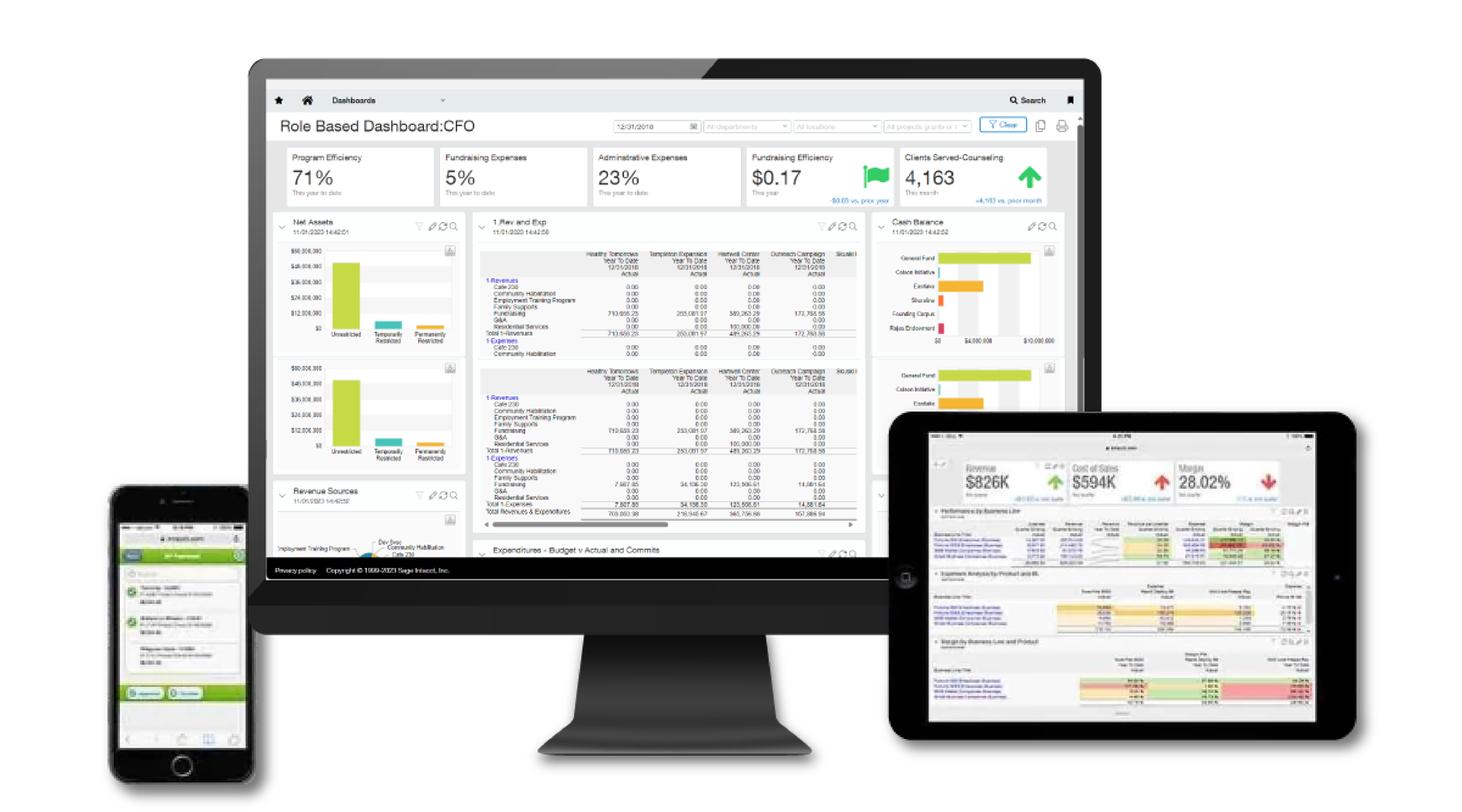Unlock value with the keys to a faster close.
Business Technology Services at Forvis Mazars provides enterprise resource planning (ERP) and customer relationship management platform analysis, design, implementation, upgrade, training, and support services. We are a Sage accounting and Sage Intacct software value-added reseller offering a full suite of consulting services. As a certified Sage Partner, our experienced team of technology consultants can help you transform your financial management processes to drive efficiency and growth.
Sage accounting systems are designed to help small and midsize organizations streamline workflows, close faster with time-saving automation, and gain real-time visibility into financial performance. The technology can gather information from across the organization to provide revenue, cash flow, and profitability insights—helping you make informed, data-driven decisions.
Further, Sage Intacct is the first and only preferred cloud accounting solution of the American Institute of Certified Public Accountants (AICPA)*. Customers also rated Sage Intacct #1 in customer satisfaction for the 9th year in a row—in addition to 100+ awards** for customer support, software innovation, and more, as reported by G2.
Moving Beyond Spreadsheets
When is it time to stop using spreadsheets for accounting? If your organization is growing or spreadsheet activity is slowing down your reporting and planning efforts, it may be time to move beyond spreadsheets.
While spreadsheets are versatile and familiar, they have limitations, including:
- Manual Data Entry: Manual data entry increases the risk of errors, which can lead to inaccurate calculations and financial reports.
- Version Control Challenges: Sharing and collaborating on spreadsheets can lead to confusion over different versions of a document, potentially leading to inconsistent or incorrect information.
- Lack of Automation: Spreadsheets lack the automation capabilities that can streamline processes like invoicing, expense tracking, and payroll.
- Limited Scalability: As business grows, managing larger volumes of data becomes more complex and time-consuming in spreadsheets.
- Lack of Real-time Insights: Spreadsheets rely on more manual processes and therefore can’t provide real-time visibility into financial performance.
- Security Concerns: Sensitive financial data often is stored in spreadsheets. As opposed to an ERP system that requires access to log in, spreadsheets can be shared with anyone, anywhere—making it challenging to safeguard against unauthorized access.











